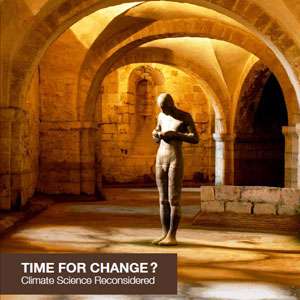Climate scientists need to establish a professional body to help define their roles, values and practices to satisfy society's needs, and to provide guidance to improve their training and development, according to a report published today by the UCL Policy Commission on the Communication of Climate Science.
This is because currently they are finding themselves ill-prepared to engage with the often emotionally, politically and ideologically charged public discourse on the evaluation and use of their science.
The report's authors argue that establishing a professional body would offer leadership for scientists working in the field, to provide a means for them to communicate more effectively with non-scientists, and to facilitate better engagement between the climate science community and policymakers.
Other recommendations in Time for Change: Climate Science Reconsidered include:
- Communication: there is a need for the general public and climate scientists to engage in an open dialogue, requiring scientists to develop a 'meta-narrative' that conveys the big picture and provides the context for discussion of results, their uncertainties and their implications;
- Training: there is a need to equip the climate science community with the skills to fulfil the roles of 'pure scientist', 'science communicator', science arbiter', 'issue advocate' and honest broker of policy alternatives'. The broader aim is to strengthen the functioning and transparency of the climate science process and the degree of public participation within it;
- Policy: Climate scientists should discard the 'linear model' of 'truth speaks to power' and participate actively in the 'co-production' of policy formulations and decision-making;
- Self-reflection: Active critical self-reflection and humility should become the evident and habitual cultural norm on the part of all participants in the climate discourse. There is a need for vigilance on the part of all involved in the discourse in scrutinising how evidence is evaluated and others are judged.
Speaking at the launch of the report, Professor Chris Rapley CBE, Chair of the UCL Policy Commission on the Communication of Climate Science, said: "We set out to explore issues concerning our primary audience – the climate science community – that we felt were previously given insufficient attention. Our overall conclusion is that we, as climate scientists, need to reflect critically on what we do and take steps to better match it with societal needs.
"To strengthen the expertise and impact of the climate science community, we recommend adapting the way in which we communicate with the general public and policy makers; enhancing the training and development of climate scientists and establishing a professional body to lead the climate change community."
The Commission brought together a cross-disciplinary group of academics from geography, earth sciences, psychology, neuroscience, science and technology studies, and energy research to examine the role of climate scientists in society and the challenges faced in communicating climate science effectively to policymakers and the public.
More information: The full report is available online: www.ucl.ac.uk/public-policy/Po … ANGE_Final_Proof.pdf
Provided by University College London




















